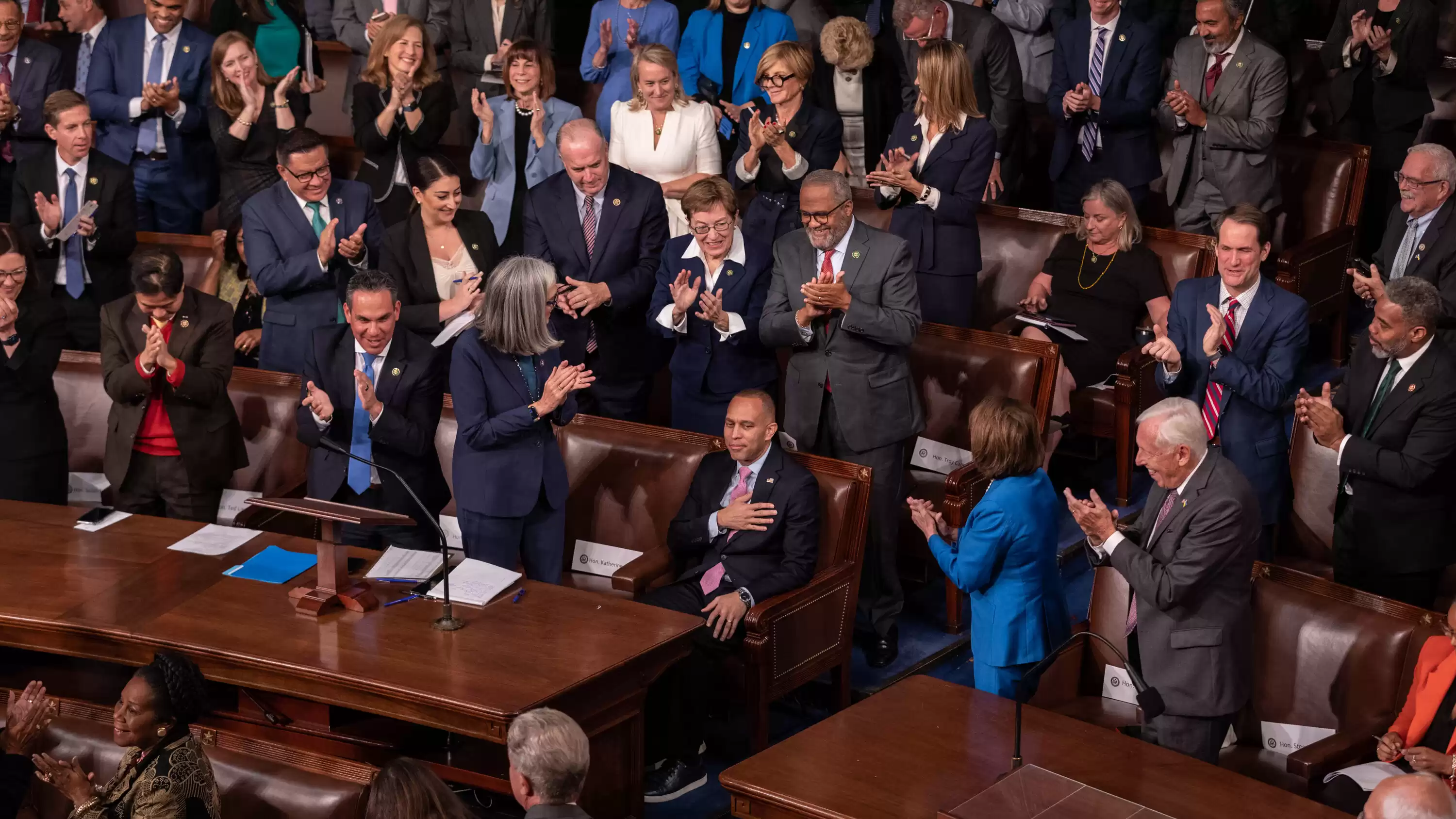Hakeem Jeffries: Why Isn't He Speaker Despite Receiving the Most Votes?
House Democrats rally behind Representative Hakeem Jeffries as their pick for speaker, despite him failing to reach the majority threshold.
House Democrats have chosen Representative Hakeem Jeffries of New York as their nominee for speaker of the House, solidifying their support around a liberal lawyer and skilled political strategist. Despite receiving the most votes in the initial round of voting, Jeffries did not meet the requirement of receiving a majority of the votes cast, as mandated by House rules.
The question arises: Can Jeffries actually become speaker? Although he received 212 votes, surpassing the 200 votes received by the Republican nominee, Representative Jim Jordan of Ohio, it is crucial to note that a plurality is insufficient. House rules necessitate a majority for the speaker to be elected.
The likelihood of Republicans defecting and voting for Jeffries, effectively handing the speaker's gavel to the opposing party's leader, is highly improbable. Such an act would be deemed political treason by both Republican lawmakers and voters.
In an attempt to address the Republican struggle in selecting a speaker, Jeffries has proposed a coalition government, which he refers to as an "enlightened arrangement." However, the feasibility of this idea remains uncertain, as Jeffries has not disclosed specific details about the informal conversations that have taken place.
Jeffries has stated that Democrats would join forces with Republicans to elect a speaker only if there is an agreement to amend House rules, allowing for "governance by consensus." This would entail enabling bills with bipartisan support to be brought to the floor for consideration. Currently, the Rules Committee, responsible for determining which legislation receives a vote, is controlled by Republicans, obstructing Democratic priorities.
At 53 years old, Jeffries is the first Black politician to lead either party in Congress, signifying a generational shift for House Democrats after two decades under Representative Nancy Pelosi of California. With a background as the son of civil servants and experience as a litigator at a prestigious law firm and CBS, Jeffries has swiftly ascended the ranks of Democratic politics in New York and Washington. Since 2013, he has represented influential Black neighborhoods in Brooklyn and gained national recognition during the Trump administration as a vocal critic and impeachment prosecutor, while also collaborating with Republicans on criminal justice reform legislation.
Assuming the role of minority leader in January, Jeffries faced the challenging task of managing a diverse Democratic caucus while countering Republican attacks on the Biden administration and aiming to regain the majority in 2024. Despite these obstacles, he has largely achieved the first objective, maintaining Democratic unity during crucial votes as the Republican caucus faces internal divisions.
In summary, Representative Hakeem Jeffries has emerged as the favored candidate for speaker of the House among House Democrats. While he received the most votes in the initial round, House rules mandate a majority for the speaker to be elected. The possibility of Republicans supporting Jeffries is minimal, as it would be seen as a betrayal within their party. Jeffries has proposed a coalition government, but its viability remains uncertain. To elect a speaker, Democrats require changes to House rules that would allow for bipartisan collaboration. Jeffries, as a trailblazing Black politician, represents a new era for House Democrats and has demonstrated his political acumen through his rise in the ranks and ability to unite his party.











Comments on Hakeem Jeffries: Why Isn't He Speaker Despite Receiving the Most Votes?